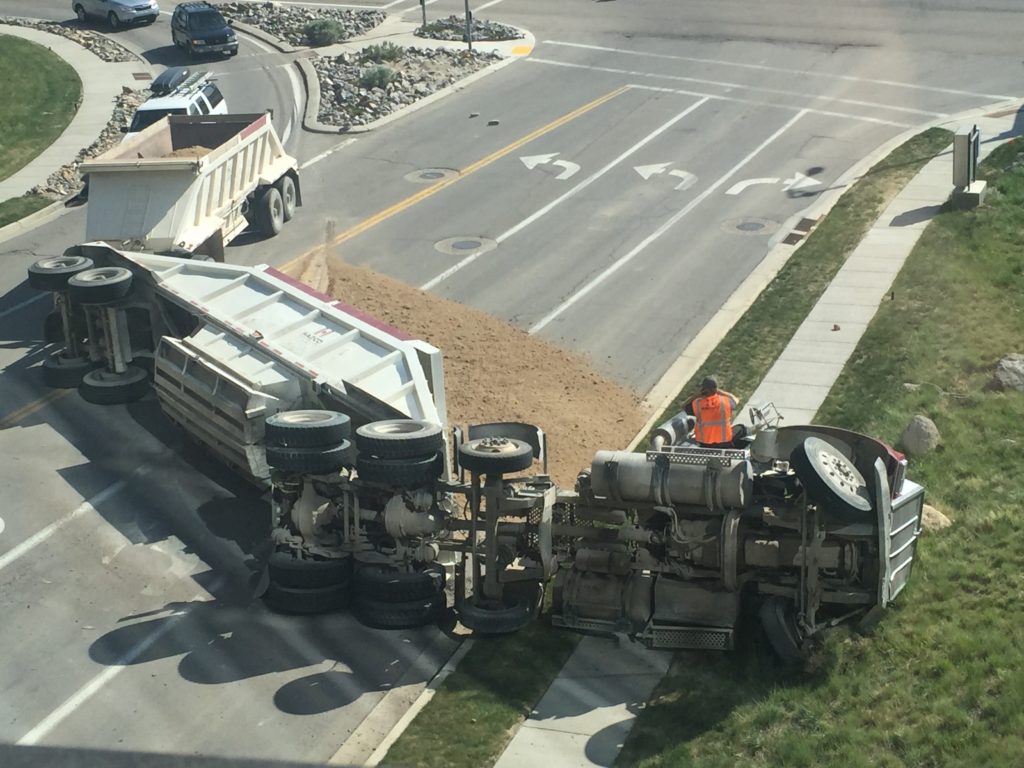
Data compiled by the National Highway Traffic Safety Administration (NHTSA), showed that nearly a third of fatal crashesin work zones involve a large vehicle or semi-truck. With such large vehicle sharing the roadway with passenger cars, truck drivers should be extremely vigilant in taking every possible precaution to avoid collisions.
Keeping an eye out:
Looks can sometimes be deceiving. The weather can make it hard to see what’s happening on the road in front of you. A driver might forget to turn their lights on. A trucker might look at the radio for a split second when traffic starts to slow down. It’s important for every long-haul driver to look ahead to try to anticipate what’s coming. Scan the road in front of you and check the mirrors regularly to be aware of what’s happening in your blind spots.
Don’t rush:
The online fidget spinner store may have promised delivery within 48 hours, but despite our growing demand for things from the internet, we should still be demanding safe travel on our nation’s highways. Soon there may not be any corner stores left to get basics like groceries as giant companies buy everything and turn the world into robot-run warehouses. The stuff we order on our smartphone apps has to get to us somehow. Before artificial intelligence replaces the need for us to ever travel outside of our houses, it may be a good idea to keep travel times for the big truck deliveries on a realistic schedule. When a driver has to carry a shipment across the country, safety should always supersede faster delivery times. I’d rather have my special order, customized hanging flower pot late than risk a driver sliding off the road in a storm because he’s trying to get there quickly.
There is no valid reason for a semi-truck to drive too fast for road conditions. Trucking and shipping companies should be regulated with this in mind. Rather than focusing on getting bigger trucks to go faster, these outfits should be making sure that everyone arrives at their destination safely. If slightly longer shipping schedules can result in fewer crashes, it’s an idea worth studying.
Also, from a labor supply point of view, truck drivers might want to look into working for another firm if they feel pressured to cut corners to make faster deliveries. In an ideal world, everyone would just follow the rules. But let’s be realistic. There is a truck driver shortage in America. The pay isn’t bad, but it’s not an easy job. Long hours, sometimes monotonous, repetitive tasks, and physically demanding job requirements means this line of work is clearly not for everybody. If a driver works for a company that doesn’t put safety first, he or she should not be shy in demanding that companies follow safety laws that are put in place for a reason. We all need to earn a living, but in this labor market you probably have options.
Put your phone away:
Distracted driving is a huge problem. As tempting as our social media feeds are, when it comes to driving, you can’t do two things at once. Anyone who drives a car these days has seen a person behind the wheel looking down at their phone. No matter how talented you think you might be at texting and driving, don’t do it. Traffic conditions can change in an instant. That’s all it takes for a distracted driver to cause a wreck. If a message is so important that it can’t wait, find a safe place to pull over. It’s a no-brainer.

